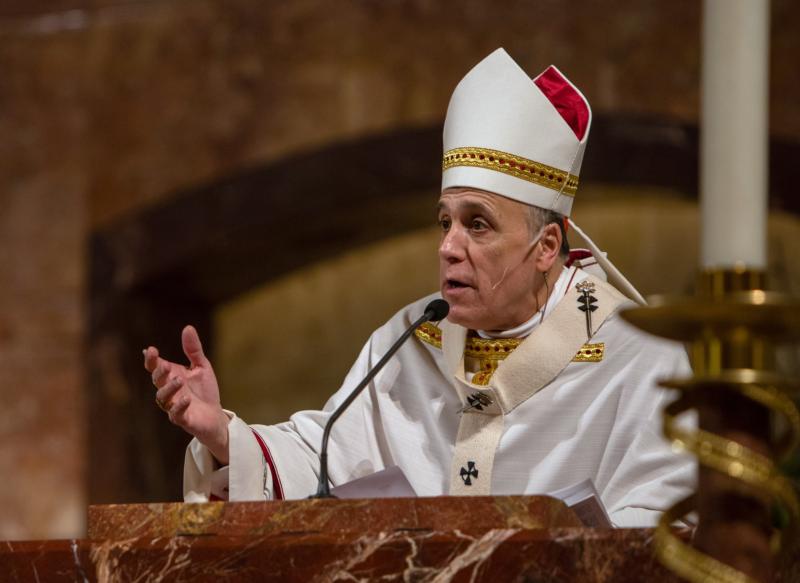
Cardinal Daniel N. DiNardo of Galveston-Houston, president of the U.S. Conference of Catholic Bishops, delivers the homily as he celebrates a chrism Mass March 27 at the Co-Cathedral of the Sacred Heart in Houston. He said that the words “we all long to hear” lay in the sacrament of reconciliation, especially during Holy Week. (CNS photo/James Ramos, Texas Catholic Herald)
HOUSTON (CNS) — In preparing for Easter, many Catholic parishes worldwide opened their church doors for extended hours for the sacrament of reconciliation with penance services on Good Friday.
These services focus on helping parishioners and public alike to more fully understand and experience the paschal mystery of Christ’s victory over death, said Cardinal Daniel N. DiNardo of Galveston Houston.
“During the season of Lent,” the cardinal said, “we undertake many forms of penance: ashes on our heads on Ash Wednesday, our fasting, abstinence, increased almsgiving as well as the unique Lenten commitments we individually make.”
[hotblock]
Fasting, abstinence and service through almsgiving remain the basis for Lenten devotions.
“Yet much as the Lord exhorts us through the prophet Joel to ‘rend your hearts, and not your garments’ (2:13), our exterior penances mean little if they do not reflect interior conversion,” said Cardinal DiNardo, who is president of the U.S. Conference of Catholic Bishops.
This repentance of heart, says the Catechism of the Catholic Church, “is a radical reorientation of our whole life, a return, a conversion to God with all our heart, an end of sin, a turning away from evil, with repugnance toward the evil actions we have committed.”
Cardinal DiNardo said, “In the beautiful sacrament of reconciliation, this reality is realized most fully as we take our particular sins and shortcomings before the Lord, longing for freedom from slavery to sin and death.”
Focusing on Holy Week, he said: “What is done each year in the days leading to Easter is living memory, a recapitulation, a retelling always new, of what Jesus has done and always remains present. His death and resurrection always abide. We are the ones who need this living retelling for our salvation and knowledge, for our prayer, for our illumination, and for the meaning of our life.”
[hotblock2]
Cardinal DiNardo echoed recent comments by Pope Francis, who said that the Lord does not want his flock to be frightened in seeking forgiveness but to come to him “with an open heart” because “it is the Father awaits us.”
“The Lord, the Father of mercies,” the cardinal said, “speaks the words through the church and the ministry of the priest that we all long to hear as he pronounces mercy, not condemnation, and restores us to the fullness of life with Him.”
And while some may fear the confessional, Cardinal DiNardo encouraged Catholics to see the light in the darkness.
“Where the darkness of death is most thick and impenetrable, the light shines,” he said. “This is a mystery of God’s love never to be fully understood, but always to be received with astonished thanksgiving and praise. The various moments of Holy Week and its many celebrations and liturgical activities are meant to proclaim this boundless love.”
***
Ramos is a staff writer and designer for the Texas Catholic Herald, newspaper of the Archdiocese of Galveston-Houston.
PREVIOUS: Catholics like much of U.S. in their regard for the Ten Commandments
NEXT: U.S. Crosiers emerge from Chapter 11 bankruptcy



Share this story